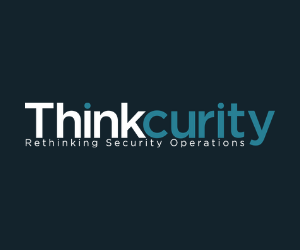Technology continues to advance at an unprecedented pace. From efficient electric cars and robotic surgical systems to stealth fighter planes, we can see the advancement of society no matter where we look.
The private security sector is not one to be left behind. In this world where gadgets and codes reign supreme, crooks get access to sophisticated tools and resources to commit security breaches and crimes. Private security companies thus employ modern technology to improve communication relay, bolster defenses, and increase situational awareness. Below, we’ve outlined some private security tech trends that you can maximize in your own organization.
Automation
Automation not only offers convenience but also extends the reach of security measures. With the help of artificial intelligence (AI), automated devices can promptly respond to situations in real time, with or without the presence of an actual human responder.
There are automatic alarms triggered by certain stimuli, thus adding a layer of protection to any potential victim. Data privacy and authentication are also made possible, thanks to contactless biometrics that also come with cloud-based identity management solutions.
Automation is not only beneficial for crime prevention. It also provides security against accidents or even self-induced harm. For instance, as a safety measure against sudden falls, an elderly person can use fall-detection devices that immediately notify and call first responders whenever they go out of balance and hit the floor.
For more robust products, companies in the security industry sometimes work with other software or hardware developers. Such collaborations lead to more reliable, automated tech that is tailored to the demands of the security company.
Mobile Apps for Workforce Management
Software technology has also seen a massive jump in improvement over the last decade. Gone are the days of simple calculators and Minesweeper. Today’s apps consist of complex coding, providing several functions with little to no glitches. The maturity of the technology is proven by the constant presence of apps everywhere we go.
The security industry also develops complex mobile apps. These include features that are tailored to clients’ specific demands. In most cases, security personnel are given security apps designed to enhance their workflow. This facilitates better communication between concerned parties and faster response time.
Also, these apps are often integrated with other security devices such as CCTVs and sound alarms, giving the security personnel better situational awareness.
Business Operation Tech
Private security companies use technology to streamline overall business operations. For instance, scheduling and overall guard management software are used for increased efficiency, safety, and accountability.
This includes quick and accurate attendance tracking solutions, organized incident reports, and user-friendly monitoring systems. There are even business operation tools and software that allow private security companies to directly send tasks and orders using the guards’ mobile devices. This results in real-time updates and responses.
Training LMS Systems
In line with its use of technology to attain objectives, security companies utilize online platforms to facilitate the training of security personnel or candidates. This platform comes in the form of a learning management system (LMS). These online training systems provide courses that the necessary personnel must attend and complete. Upon completion, such personnel will acquire the licensing standards needed to be security guards.
Defencify is an online training company that offers quality LMS to security firms. The training program includes a catalog of 20 courses, all based on pertinent learning and security management theories. For ease of engagement, these courses can be completed at any place and time, depending entirely on the trainee’s convenience. Nevertheless, to ensure compliance and attendance, reports of each session are recorded.
Defencify can also cater to both huge and small-scale security firms. The scale of LMS can be toned down or up depending on the firm’s size and resources.
Consumer Training
It’s not only the guards that private security companies must train. Consumers or clients must also have adequate knowledge on the security services and products they’re buying. Otherwise, problems may arise like utilization issues, an influx in support expenses, or a decrease in profits.
This is where platforms like Intellum come in. With this online training platform, clients and partners can attend live events on product education and training. Thus, security training is accessible to all parties involved.
The Bottomline
Like other industries, the private security sector also has to incorporate technology trends for 2022 to gain a competitive advantage and achieve business success. These include automation, mobile apps for workforce management, training LMS, business operation tech, and consumer training. Whoever can provide these services and features in one package will be the next Apple, Tesla, Microsoft, or Amazon of the security industry.





